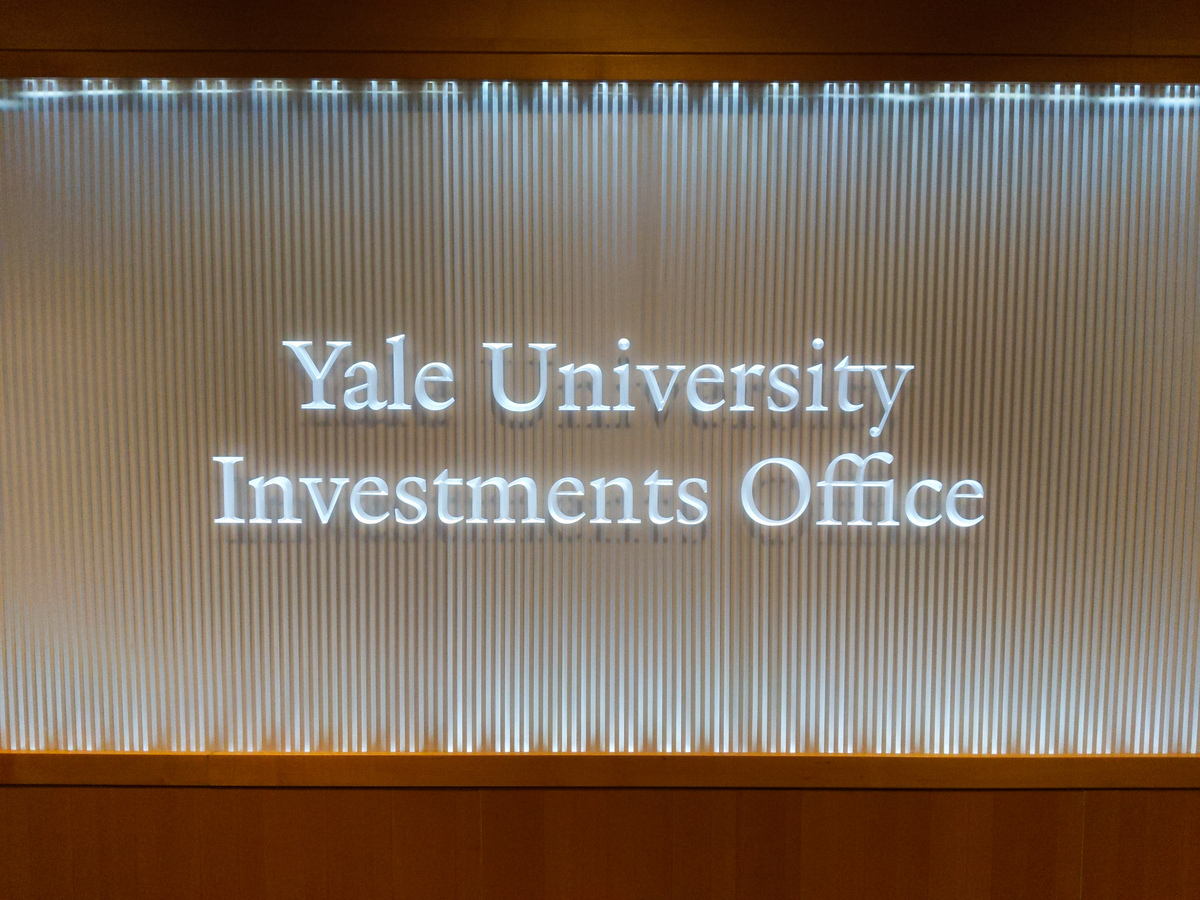Yale money pulled from Russia after invasion
Following global sanctions, Yale’s investments are pulled out of Russia.

Amay Tewari, Senior Photographer
Millions of dollars from the Yale endowment were pulled from Russian investments, eliminating all of the University’s financial exposure to the country, according to University President Peter Salovey.
At the end of 2021, Yale held $362 million in Vanguard’s emerging market exchange-traded fund, or ETF, which allocates 2.9 percent of its common stock towards Russian holdings — translating to a $10.5 million exposure on Yale’s behalf to those Russian assets. The ETF invests in stocks of companies from countries in emerging markets around the world, and is intended to track the return of the FTSE Emerging Markets All Cap China A Inclusion Index. In the wake of international government sanctions on Russia, FTSE decided to remove Russian stocks from the index, thus erasing Yale’s financial exposure to Russia.
“The endowment has no manager relationships in Russia or who focus on Russia, and we haven’t for over two decades,” Salovey told the News. “We are pleased that FTSE has decided to remove Russia from its index, which eliminates the very small passive indirect exposure to Russia that we previously held.”
The Yale endowment gives management control of some of its funds to external fund managers, who invest the University’s money on its behalf. Vanguard is one of these fund managers, and the firm invests hundreds of millions of the University’s money in assets around the world. According to Salovey, the Yale Investments Office directed Vanguard to place some of the University’s money in a fund that invested in the FTSE index — the emerging market ETF — which had included Russian assets.
The University declined to reveal exactly how much was previously invested in Russian holdings. According to the Investment Office’s 2020 report, the University allocated 6.5 percent of its portfolio, or just over $2 billion, to “emerging markets,” which includes Russia, among many other countries.
Matad Zinkevicius, who authored an opinion piece in the News calling on the University to divest from Russian holdings, indicated that the University’s decision was a step in the right direction.
“I think institutional investors should divest from Russia completely while the war is going on,” Zinkevicius said. “And afterwards, I think they should reevaluate their investments.”
Oleksii Antoniuk ’24, a Ukrainian student and advocate who led the Feb. 27 student vigil at Cross Campus, praised the University for its stance on Russia’s invasion, saying that it had taken all the correct steps so far. In particular, he pointed to Yale Health’s decision to send medical supplies to Ukraine, as well as the University’s increased financial support for Ukrainian students who need it, its swift message of condemnation and this divestment.
Antoniuk explained that even though the nominal value of the University’s Russian holdings is not significant relative to the size of the endowment, it is a symbolically important decision.
“It is very important to symbolically show support for Ukraine and to divest money, even small money from Russia, because every instance counts,” Antoniuk said. “It is much easier to enforce this divestment from Russia when everyone does.”
However, he noted that there is still more to be done to support Ukraine in this war. Specifically, Antoniuk called on the University to admit more students from Ukraine to prepare the next generation to rebuild the country.
On Monday, Vanguard further announced that it was suspending all purchases of Russian securities.
“We have suspended purchases of Russian securities across our internally and externally managed active funds and are actively working to further reduce our exposure to Russia and exit the positions across our index funds,” the company’s statement read.
Associate professor of political science Tyler Pratt explained the significance of the newest global sanctions on Russia and their impact on American investment.
“There are both direct and indirect effects,” Pratt said of the sanctions. “In some cases, the United States and others have simply banned trade and financial transactions with certain portions of the Russian economy. This includes Russian entities operating in the Ukrainian territories of Donetsk and Luhansk. It also includes several specifically designated firms (like VTB Bank) and business entities linked to some Russian oligarchs.”
Pratt further explained that it is unlikely that the United States will issue a general ban against all Russian investment, but that the business community has, in some cases, gone farther than the government regulations, with many private companies voluntarily pulling investments and operations out of the country.
Russian assets are also drastically falling in value as sanctions, coupled with a collapse in the Russian Ruble, has made assets in the country undesirable.
According to the Financial Times, asset managers face the potential for “deep losses,” as Moscow’s equity markets are suspended, trading in many Russian companies is stopped and bonds are nearly impossible to trade.
Pratt described the recent wave of global sanctions on Russia as the most “onerous financial and economic restrictions ever placed on a major economy,” and even expressed surprise at the scale of the punishments seen in recent days.
“The additional restrictions on Russia’s economy due to the recent invasion — which includes trade sanctions, financial and travel restrictions, asset freezes, and voluntary boycotts or withdrawals from private firms like Apple, Shell, and Visa — have been both deep and broad,” Pratt wrote.
The Yale endowment was worth $42.3 billion on June 30, 2021.
Correction, March 9: This article has been updated to reflect the Yale Investments Office’s relationship with Vanguard.







